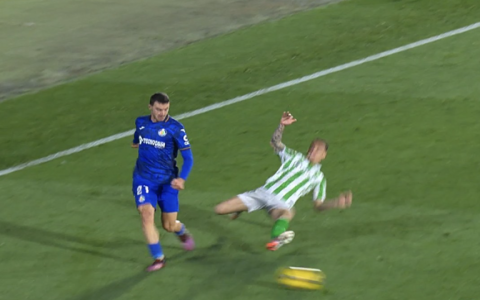Yesterday’s match between Real Betis and Athletic Bilbao was one I really wanted to watch. I had dinner plans with friends, but I canceled them just so I could watch the entire game in peace. I didn’t want to just see the result; I wanted to figure out: Who was truly making an impact on the field? So I opened my laptop, created a new document, and started writing as I watched, jotting down whatever came to mind.
How I Took Notes
I avoided stats charts and expert analyses, just watching the game itself. I left my phone in another room to avoid distractions. On my computer, I had only the live stream and a blank document open. I divided the document into two columns: Betis on the left, Athletic Bilbao on the right.Whenever a player did something noteworthy—good or bad—I jotted it down immediately.
For instance, in the first half, Betis’s Fekir dribbled the ball through an opponent’s legs with blinding speed. I froze for a second, then typed: “Fekir—incredible footwork!”
Then there was Athletic Bilbao’s Williams, who charged forward right from the kickoff, breaking through twice on the left and leaving Betis defenders in his wake. I wrote: “Williams—trouble on the left flank.”
And Betis’s Guido Rodríguez, constantly winning the ball in midfield, snatching it away whenever an opponent got close. I simply noted: “Guido—solid tackling.””
At halftime, I started noticing patterns
After the first half ended, I grabbed a drink and flipped through my notes. That’s when things started clicking.

Williams was indeed fast, but on one breakaway, Betis goalkeeper Rui Silva charged out and blocked the shot with his leg.That moment was crucial—had he missed the save, the score could have changed. I immediately added: “Rui Silva—that save saved the team.”
On the other end, Fekir dribbled into the box, looked set to shoot, but lost the ball. Athletic Bilbao countered instantly and scored seconds later.Seeing this, I immediately wrote: “Fekir’s turnover directly led to the goal.”
This shows that even if a player performs well, a single mistake can cause major problems.
I also noticed that Betis’ Canales barely touched the ball throughout the match. He’s usually one of the team’s key players, but he seemed invisible this game. I jotted down: “Canales—barely noticeable today?”
Athletic Bilbao’s midfielders were physically strong and constantly battling for the ball, but they’d lose possession quickly after gaining it, unable to string passes together. I noted: “Midfielders can’t hold onto the ball; it’s gone after two passes.”
After the match, I identified who truly mattered
The whistle blew, and I glanced back at my notes. Though messy, they clearly showed who truly influenced the game.
These players stood out as crucial:
- Rui Silva: Goalkeeper. That save was vital, directly preventing the opposition from taking the lead.
- Guido Rodríguez: Solid defensively, won many tackles, making it hard for the opposition to advance.
- Fekir: Creative and capable of breaking through, though one mistake led to a goal conceded.
- Williams: Fast, constantly pressuring the opposition’s left flank.
Those who underperformed:
- Canales: Barely involved in attacks—unclear if off form or tightly marked.
- Athletic Bilbao’s midfield: Physically strong but poor ball control, frequently losing possession immediately upon receiving the ball.
What I Learned
Watching this match, my biggest takeaway is: The outcome isn’t decided solely by goal scorers or the fastest runners. Sometimes, a single save, a tackle, or even a mistake can alter the entire game’s trajectory.
Take Rui Silva’s save, for instance. Though he neither scored nor assisted, his contribution was as crucial as any goal. And Fekir? He delivered dazzling dribbles alongside costly errors. This shows players aren’t black and white—one can shine brightly and stumble badly in the same match.
Why I Love Handwritten Notes
Many people enjoy post-match statistics like pass completion rates or total distance covered. But I’ve found that numbers alone don’t capture the true essence of the game. Take “Fekir lost possession”—the data might simply say “one turnover,” but it doesn’t tell me the context. My handwritten note reads: “Dribbled into the box, got tackled, and the opponent immediately countered for a goal.” That paints a picture and reveals the severity.
So I believe that instead of staring at cold, hard tables, it’s better to watch and take notes yourself. Even if your handwriting is messy or your sentences incomplete, those are things you saw with your own eyes—and they stick with you the most.
Next time there’s an important game, I’ll do it again. I don’t chase perfection; I chase authenticity. Because the players who truly impact the game aren’t always the ones with the highest stats—they’re the ones who make you gasp “Wow!” while watching.
